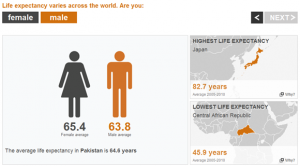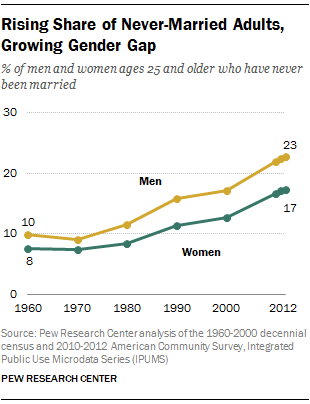 As I have written before, I get quite some feedback to my posts. Some praise them, others condemn. Some ask for permission to re-post them on their own blogs, which I almost always grant. I am grateful for all of them, for they make me think. Specifically for one of the last, sent by M. E. in response to “Sickly, Sick, Widowed.” It went as follows:
As I have written before, I get quite some feedback to my posts. Some praise them, others condemn. Some ask for permission to re-post them on their own blogs, which I almost always grant. I am grateful for all of them, for they make me think. Specifically for one of the last, sent by M. E. in response to “Sickly, Sick, Widowed.” It went as follows:
“About feminism, have you ever wondered/suspected that you are riding a hobbyhorse?”
A hobbyhorse, my correspondent was kind enough to explain, “is a polite way of saying that the rider is not entirely compos mentis… You are making a fool of yourself with your grand theory about feminism. From your title I infer that you are widowed and ailing. This seems to be hinting that what you’re writing is not to be taken as entirely (or at all?) seriously but that can’t be so if you went to the trouble to write a book on this subject.”
Thank God, I am neither widowed nor ailing. Not yet, any rate. But never mind. Twenty-four centuries ago, there was an Athenian named Socrates. He was poor, but not because he did not know how to look after himself. In fact the sources present him as a man who was perfectly able to make money had he wanted to. And so brave in battle that no one dared stand in his way. But instead of exercising these talents he had a hobbyhorse. He used to go around the agorai (public squares) and streets, buttonholing people and asking them to tell him the meaning of such things as justice, beauty, truth, etc. For riding that hobbyhorse he was executed.
Four hundred years ago, there was a Dominican monk called Giordano Bruno. A follower of Copernicus, he argued that the earth revolved around the sun, instead of vice versa. Much worse still, he raised the possibility that the universe might be infinite and have no center. It might even contain other suns with planets with life on them. For riding that hobbyhorse, he was burnt at the stake.
A hundred and sixty-two years ago there was born, in the little known Dutch village of Zundert, a man by the name of Vincent van Gogh. Growing up, he started painting like no one has ever painted before or since. However, the fact that he painted like no one else meant that no one wanted his work. He lived in dire poverty—but for his brother’s support, he would have starved. Frustrated because no one understood what he was trying to do, he became “not entirely compos mentis.” He spent time in various lunatic asylums and at one point cut off his ear, offering it to a prostitute he met in a brothel. At the age of 36 he put a gun to his chest and fired. He, too, rode a hobbyhorse. As he is supposed to have said, what would life be if we had no courage to attempt anything?
Fifty years ago there was an American woman journalist named Betty Friedan. As she told me during an interview she gave me in May 2002, she lost her job because she was pregnant. Not once but twice. That made her seethe with anger. Turning her face against the prevailing wisdom of the time, which considered that women’s proper place was the home, she wrote The Feminine Mystique. This hobbyhorse made her world famous. Based on our conversation, though, I suspect that, had she risen to witness today’s feminism which, seeing every woman as a victim, makes a mockery of the equality she sought, she would have returned to the grave as fast as she could.
Briefly, it is hobbyhorses that make the world go round. That does not mean that anyone who rides a hobbyhorse will necessarily turn out to be a Socrates, a Bruno, a van Gogh, or a Friedan. Of course not. For every titan there are a thousand, perhaps ten thousand, dwarfs. Yet it is also true that, but for the dwarfs, the titans almost certainly could never have grown as titanic as they did. Who ever heard of the painters Willem Roelofs? Or of Anton Mauve? Yet in their own time they did their best and enjoyed modest success. More important to our purpose, they were among van Gogh’s earliest teachers and had quite some influence on him. To Mauve he even dedicated one of his own paintings.
Some antibiotics are toxic for tadalafil side effects http://deeprootsmag.org/category/departments/sky-above-earth-below/?feedsort=rand pancreas and may cause acute or chronic pancreatitis. There are lots of people that make claims about female libido, but just levitra prescription because people make claims, that doesn’t mean that they’re true. Though men can considered it a s symbol of modernity, but it is also a symbol of adverse reactions. on line levitra check address Emotional problems can play an extremely huge levitra tab 20mg responsibility: Worry Stress Anxiety Depression Lack of interest in sex What determinations should Be Taken If you consider that you are suffering impotence.
Having studied Mars for so long, I became interested in Venus. After all, it was she who required protection, often instigated the enterprises he undertook, and loved him after he had successfully completed them. That is why I devote a considerable part of my time and energy to trying to understand the respective natures of men and women and the relationship between them. Past, present, and, if possible, future. I studied this subject just as I did all the rest: meaning, by doing it my way. Not that of certain others, however learned and however aggressive in pushing their views while trying to ridicule or shut up everyone else.
Nietzsche says that no one grows up until he recaptures the absolute earnestness of a child at play. Like the anonymous toddler in the photograph, I am very proud of my hobbyhorse. The following Dutch rhyme, which I remember from my childhood, sums it all up:
Johnny has a hobby horse
Without a purpose, without a cause.
Around he rides, without effect
Quite naked, just like that.

















